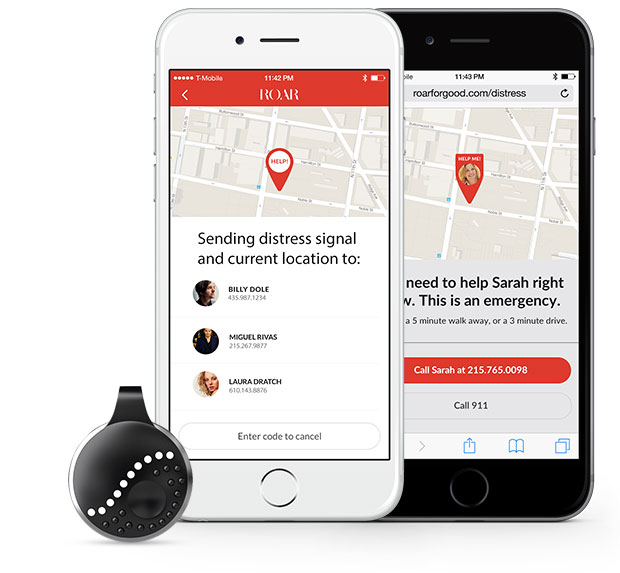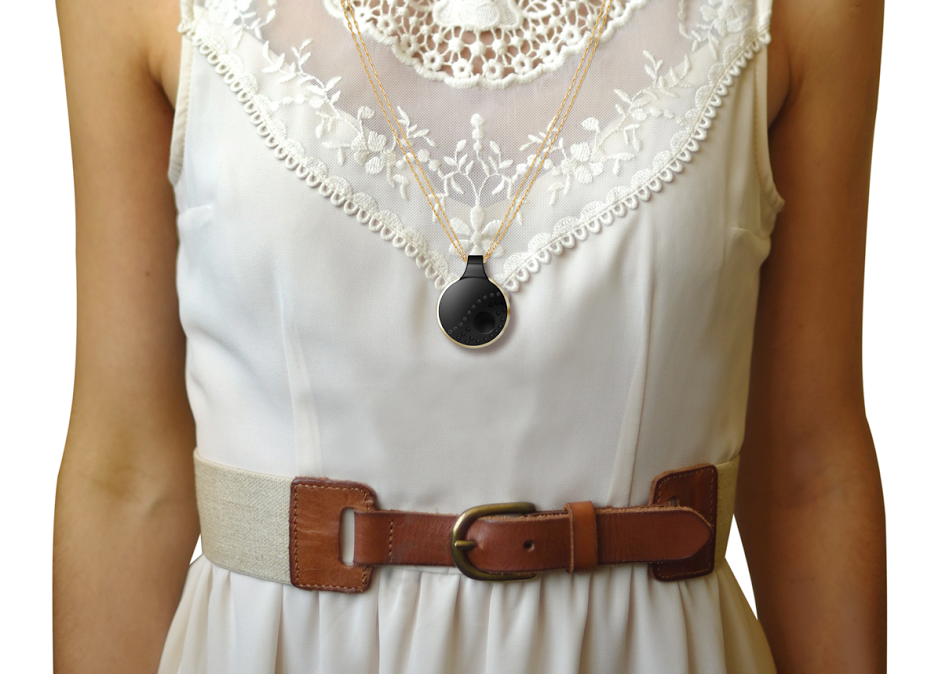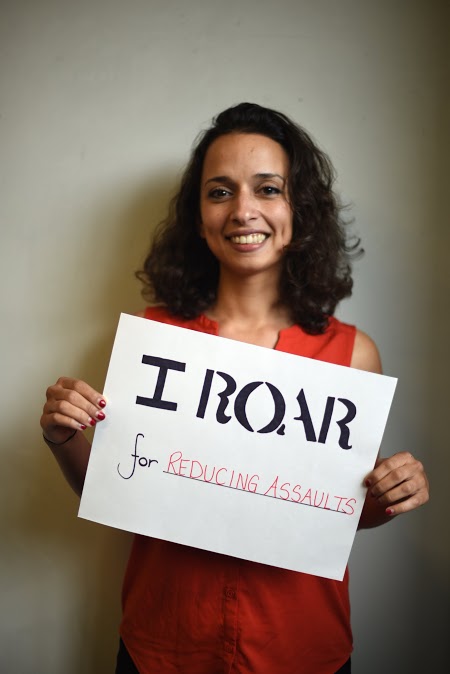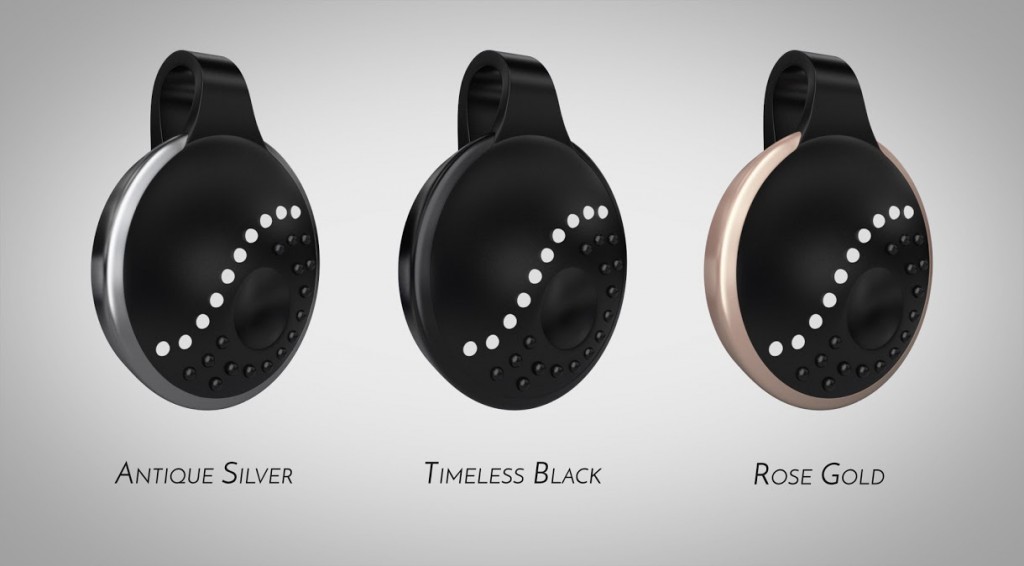ACCORDING TO THE RAPE, ABUSE, AND INCEST NATIONAL NETWORK (RAINN), someone commits a sexual assault in America every 107 seconds, which equals about 230,000 victims a year. That’s a staggering number that makes you want to bury your head in your pillow and never look up again. But Yasmine Mustafa and her team at ROAR for Good aren’t burying their heads — they’re actively working to decrease that statistic. Mustafa is the CEO & co-founder of ROAR for Good, a social-impact company aimed at empowering women to live their loves boldly and without fear. ROAR for Good has developed Athena, an accessory that can be worn as jewelry, on a belt, or in many other ways, whose main purpose is to activate an alarm if you are being assaulted. The alarm will immediately send a distress message and your GPS location to pre-set emergency contacts. It looks like people have been waiting for this kind of product for a long time; the product has surpassed its Indiegogo goal by almost 600%. Mustafa spoke with Lady Clever about the inspiration for creating Athena, helping young girls discover their passion for coding, and how this piece of jewelry could help save women’s lives.
How did you become CEO and co-founder of ROAR For Good?
After I sold my last company in 2011, I decided to take some time away from the computer and figure out where I wanted to take my career. That turned out to be embarking on a six-month solo-trek through South America. While the trip was incredible, I met so many women (both locals and travelers) who shared their harrowing experiences with violence and assault. And then one week after I returned to Philadelphia, a woman was brutally attacked and raped just a block from my apartment. That’s when I knew what I wanted to do next with my life, and that’s when the idea for ROAR for Good was born.
Can you explain to our readers how Athena works?
Athena acts in two critical ways to help in threatening situations: first, it emits a loud alarm (at 85 decibels) to potentially deter an attacker. Second, it sends text messages to a predetermined set of friends and family with your GPS location, signaling them that you’re in danger and enabling help to be sent your way. We also have the goal of enabling Athena to automatically call 911, but we have more engineering work there to enable that potential.
Do you have any preliminary statistics or projection estimating how many sexual assaults Athena will prevent?
Here’s the unfortunate truth. No device – not even Athena – is going to solve this issue of assaults against women. We are hopeful that we can help deter attacks, but we really want to get to the root causes of violence. That’s why we’re taking a percentage of proceeds for each Athena device sold and investing that into non-profits that are teaching empathy, respect, and healthy relationships to [individuals] – programs which have been shown to decrease violence.
How long did it take to perfect Athena’s technology?
We’ve been developing and user-testing Athena for about 16 months. That involves conferring with police and criminal justice authorities on the best avenues of prevention, focus-group testing with women on the ideal design for efficacy and user experience, and then the subsequent R&D work to turn the idea into our current functional prototypes. We still have some work to do to get to our final product, but we are well on the way.
How long does it take for an emergency contact to receive a distress call and location after someone has activated the alarm?
Instantaneously – that’s the amazing thing about using smartphone technology. Athena effectively cuts out the middleman of you having to call authorities yourself in an intense or threatening situation, and instead uses your friends and family as valuable resources in helping keep you safe. And if we get the automated 911 calling to work, then we’ll have an even greater impact.
Do your emergency contacts need to download the ROAR app for them to receive your information?
No. The contacts can get simple text messages with the alert and GPS location. But if they do have the ROAR app, they will get even more functionality such as a button for calling 911, a map showing the location, and many other features.
Athena offers both alarm modes and silent modes, and on its site it even lists what mode should be activated in certain situations. While you were developing Athena, did you meet with any sexual assault prevention experts or victims to determine the best capabilities for the device?
Yes, the silent mode was the product of user research with women in sororities to determine all of the different scenarios where Athena could be useful. Due to the prevalence of domestic sexual violence or sexual assault from people you know, we developed the silent mode to act as a call for help and deterrent when the situation calls for delicacy and caution to get the wearer out of a possibly-threatening situation safely.
You’ve surpassed your Indiegogo goal by almost 600%. Congratulations. What do you attribute people’s excitement for your product to?
Many women expressed dissatisfaction with current self-defense devices, voicing the concern that they were less interested in carrying something that could be used against them by an attacker. I also think people respond to our initiatives that get to the root causes of violence against women and attempt to change society from the ground up, like our partnership with the One Love Foundation and our dedication to changing the culture that permits this violence to permeate society.
 You work with a few non-profit organizations that seek to empower young people — especially girls — to develop their technical and coding skills. Do you find that a lot of young women are interested in coding?
You work with a few non-profit organizations that seek to empower young people — especially girls — to develop their technical and coding skills. Do you find that a lot of young women are interested in coding?
Young women are interested in everything — from coding to tech to science to politics — and it’s only the disadvantages of a homogenized system that makes their interests seem unusual. As a result, you don’t find as many young women in those fields, whether they’re actively discouraged from joining or because they feel they wouldn’t be welcomed. I love working with organizations that attempt to change how young women are viewed and accepted in the fields for which they’re passionate.
What makes you so passionate about helping and encouraging young girls to develop coding skills?
Primarily from my own failed attempts to find a supportive and welcoming environment to learn how to code. That’s why I started Girl Develop It Philadelphia – to provide such a framework.
Thank goddess for Athena: an accessory that’s not only fashionable and functional, but a potential lifesaver. We think Anna Wintour would approve.
Check out ROAR for Good’s Indiegogo, and keep up with them on Facebook, Twitter, and Instagram.



















